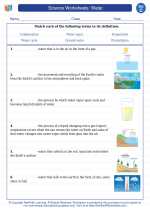Science Worksheets: Water. -> information technology
Information Technology
Information technology (IT) refers to the use of computer systems, storage, networking, and other physical devices, infrastructure, and processes to create, process, store, secure, and exchange all forms of electronic data. IT has become an integral part of our daily lives and is used in various fields including business, education, healthcare, and entertainment.
Key Concepts in Information Technology
- Hardware: This includes physical components of an IT system such as computers, servers, storage devices, and networking equipment.
- Software: Refers to the programs and applications that run on the hardware, including operating systems, productivity software, and custom applications.
- Networking: Involves the connection of multiple computing devices to share resources and information.
- Security: Focuses on protecting IT systems, networks, and data from unauthorized access, cyber-attacks, and data breaches.
- Data Management: Involves the organization, storage, and retrieval of electronic data using databases and other data storage systems.
Benefits of Information Technology
Information technology has revolutionized the way we work, communicate, and access information. Some of the key benefits include:
- Improved communication and collaboration
- Efficient data management and storage
- Automation of repetitive tasks
- Enhanced productivity and decision-making
- Global access to information and services
Study Guide
To understand information technology, it's important to explore the following topics:
- Introduction to Computers and Hardware Components
- Operating Systems and Software Applications
- Computer Networking and Internet Basics
- Data Management and Databases
- Information Security and Cybersecurity
Additionally, hands-on experience with basic computer operations, file management, and internet usage can provide practical insights into the world of information technology.
For further exploration, consider researching specific IT career paths, the impact of IT on various industries, and emerging technologies in the field.
By developing a solid foundation in information technology, you can gain valuable skills that are essential in today's digital age.
.◂Science Worksheets and Study Guides Third Grade. Science Worksheets: Water.
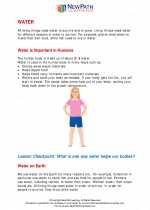
 Worksheet/Answer key
Worksheet/Answer key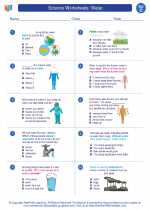
 Worksheet/Answer key
Worksheet/Answer key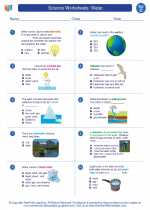
 Worksheet/Answer key
Worksheet/Answer key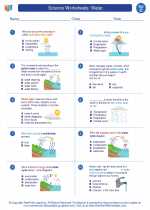
 Vocabulary/Answer key
Vocabulary/Answer key